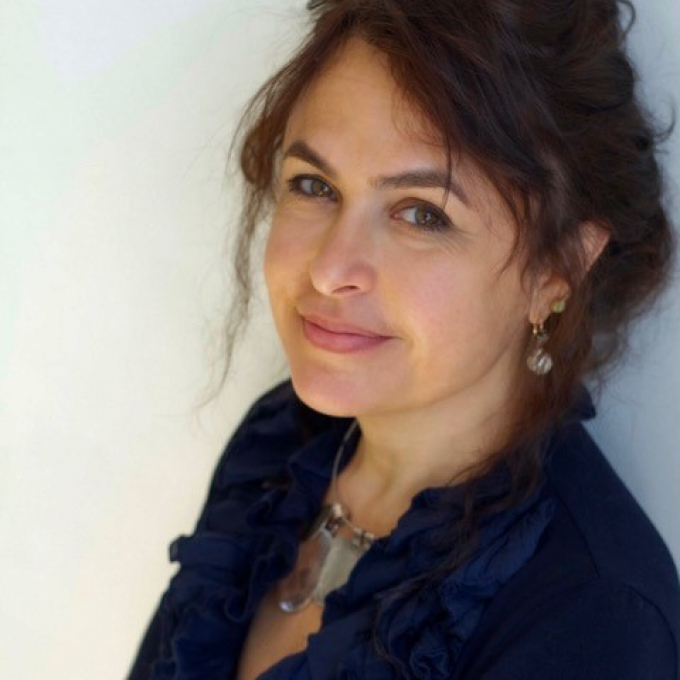
- ©
- Susannah Baker Smith
Selma Dabbagh
- Dundee, Scotland
Biography
Selma Dabbagh is a writer of prose, plays and essays who lives in London. She is of British Palestinian origin and grew up between England, Saudi Arabia and Kuwait. Having trained as a lawyer she worked in the field of human rights in London, the West Bank and Cairo, before she started writing fiction while living in Bahrain.
Her short fiction has been published by International PEN, Granta and the British Council. Her short fiction has appeared in the speculative fiction collection Palestine +100 published by Comma Press and in anthologies published by Saqi, BARE Lit, Les Fugitives and others. Her non-fiction has appeared in The Guardian, the London Review of Books and GQ magazine.
Her first novel, Out of It, set between Gaza, London and the Gulf, was published in 2011 and listed as a Guardian Book of the Year.
Selma has also written for stage and screen. Her radio play, The Brick, was broadcast as an afternoon play for BBC Radio 4 and Sleep It Off, Dr. Schott, was broadcast by GDR in Germany. In 2021 she edited the anthology, We Wrote In Symbols; Love and Lust by Arab Women Writers (Saqi) described as ‘groundbreaking,’ by the Washington Post, the collection comprises over a hundred pieces written in Arabic, French and English by over 75 writers on the subject of the erotic.
She is a judge on the Society of Author’s McKitterick Award for best first novel by a writer over the age of 40.
Bibliography
Awards
Author statement
My writing moves from being concerned with the public political forces exerted on individuals, to exploring the personal and the erotic. When I started writing, particular themes kept recurring: idealism, political engagement, placelessness and the impact of social conformity on individuals. I write because fiction provides me with a sense of unlimited freedom and because of the way it makes me find stories, empathy and beauty in my surroundings. I also believe that a well-drawn character can live on long after factual information has been forgotten.